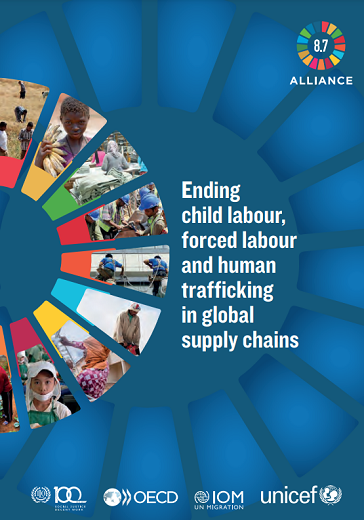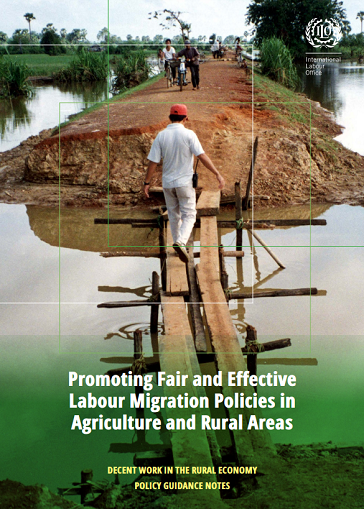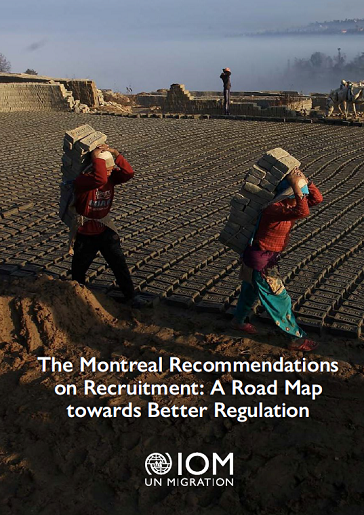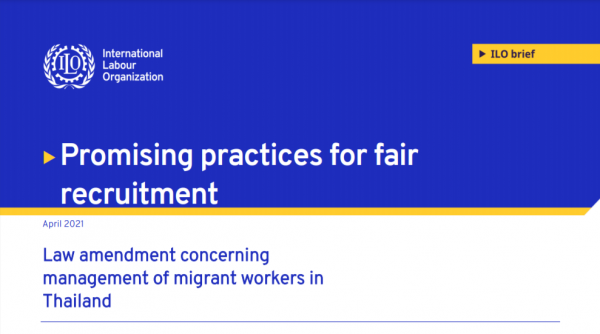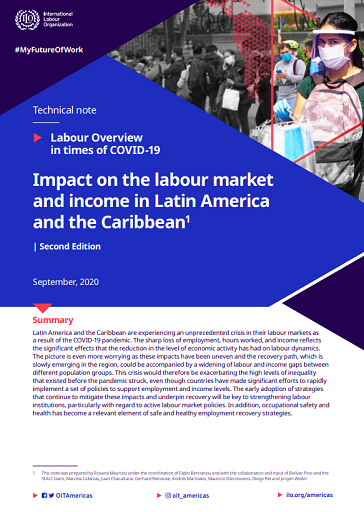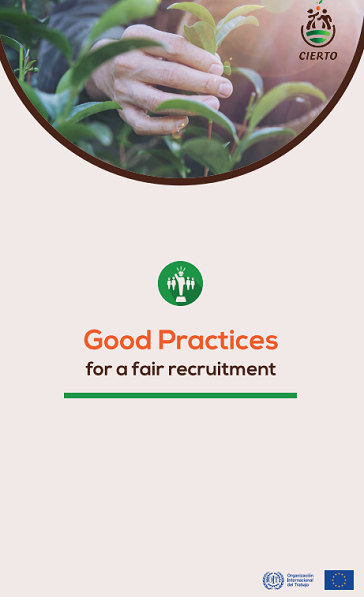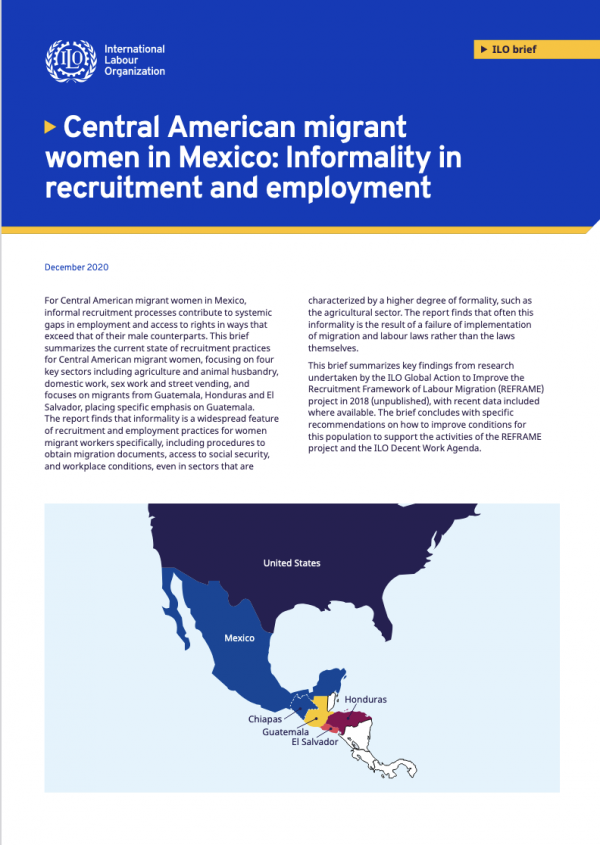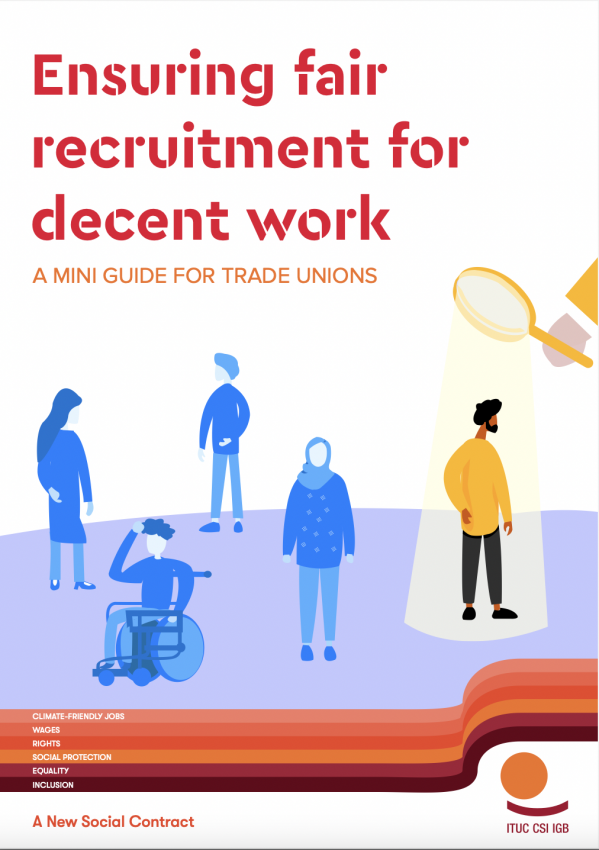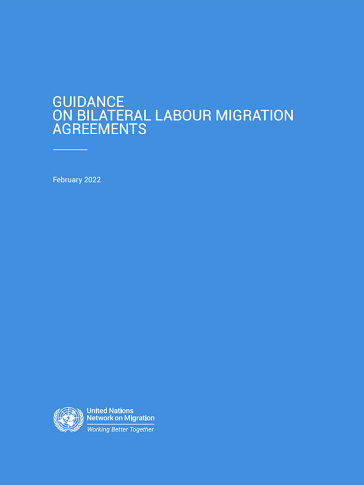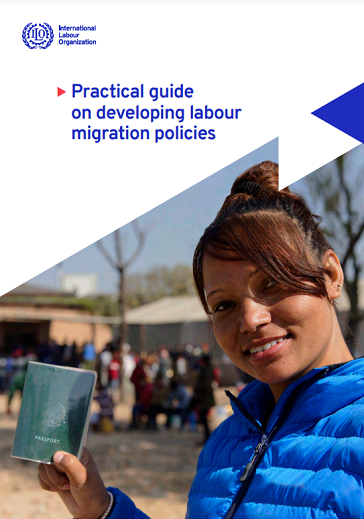Ending child labour, forced labour and human trafficking in global supply chains
Promoting fair recruitment is a critical priority in the context of both international and internal migration. As discussed in PART 1, a key finding of recent ILO research is that recruitment abuses – and in particular the payment of illegal recruitment fees and related costs – are one of the main ways in which forced labour and human trafficking enters supply chains.
The adoption of laws and regulations to help ensure that workers and jobseekers are not charged recruitment or related costs, or subjected to other recruitment-related abuses – addressed in the Global Compact for Safe, Orderly and Regular Migration and international legal standards – is therefore critical to broader efforts against forced labour and human trafficking.
Type of document :
Country/Region :
Year of publication :
Theme : , , , , ,
Promoting fair and effective labour migration policies in agriculture and rural areas
Migrant workers make an important contribution to the growth and development of rural areas, and more particularly the agriculture sector. However, they face pervasive decent work deficits, which include informality; a lack of opportunities for skills development and recognition, income security, social protection coverage and portability of benefits; and exposure to work-related accidents. Furthermore, they are vulnerable to forced and child labour, human trafficking and unethical recruitment, and – especially in the case of migrant women workers – experience discriminatory treatment.
The ILO endeavours to forge policies to maximize the benefits of labour migration for rural economies around the world, while ensuring the good governance of labour migration and the respect of human and labour rights.
Type of document :
Country/Region :
Year of publication :
Theme : , ,
The Montreal recommendations on recruitment: A road map towards better regulation
This resource presents policymakers and regulators with practical guidance and ideas to improve regulation and oversight of international recruitment and protection of migrant workers. It covers a broad range of themes, including the following:
a) recruitment fees;
b) licensing and registration of labour recruiters;
c) inspections and enforcement;
d) access to grievance mechanisms and dispute resolution;
e) bilateral and multilateral mechanisms; and
f) migrant welfare and assistance.
The guidance results from a global conference held in Montreal, Canada, that brought together leading experts and practitioners from more than 30 countries around the world. It reflects an important milestone in global efforts to promote ethical recruitment.
Type of document :
Country/Region :
Year of publication :
Theme : , ,
Promising practices for fair recruitment
This list presents a series of promising fair recruitment practices and results from a stocktaking exercise undertaken five years after the launch of the Fair Recruitment Initiative (FRI).
Establishment of the National Union of Malagasy Domestic Workers (SENAMAMA)
Code of Conduct for Ethiopian Overseas Private Employment Agencies
Recruitment of health workers through bilateral labour agreements (BLAs): Kenya and the United Kingdom
Madagascar alignment of labour code to newly ratified conventions
Regulation of Private Recruitment Agencies in Uganda
Law amendment concerning management of migrant workers in Thailand
Revision of the Law on Contract-Based Overseas Workers
Italian National Action Plan to tackle labour exploitation, unlawful recruitment and forced labour in agriculture
Nepal – Bilateral labour agreements include provisions related to fair recruitment
Bangladesh – Government capacity enhanced to promote fair recruitment in bilateral negotiations and arrangements
Tunisia – Formation of a new body of inspectors for the recruitment industry
India – Blacklisting employers and recruiters abroad to protect Indian migrant workers
Piloting fair recruitment from Bangladesh to Qatar in the construction sector
Fair recruitment pilot between Nepal and Jordan in the garment sector
Mexico - Fair recruitment practice by recruitment agency adapted to COVID-19
Code of Conduct on the fair recruitment of Filipino migrant domestic workers in Hong Kong (China)
Code of Conduct in international supply chains by Responsible Business Alliance
Commitment to fair recruitment and due diligence in the sugar and palm oil industry of Guatemala (English) Guatemala – Compromiso con la contratación equitativa y la debida diligencia en el sector guatemalteco del azúcar y el aceite de palma (Español)
Zero recruitment fee policy for (migrant) workers in Jordan
Guatemala – Outreach through trade unions including attention to COVID-19 (English) Guatemala – Difusión a través de los sindicatos, incluida la atención a la COVID-19 (Español)
Raising Pakistani migrant worker’s awareness of their right to fair recruitment
Type of document :
Country/Region : , , , , , , , , , , , ,
Year of publication :
Theme : , , , ,
Labour overview in times of COVID-19: Impact on the labour market and income in Latin America and the Caribbean [Second Edition]
The COVID-19 pandemic has generated unprecedented changes in the world of work. While the crisis has affected all workers, migrants and their families, especially those with irregular migration status and/or engaged in informal work, face additional challenges.
In this context, this Briefing Note has three objectives. First, it briefly analyses the labour landscape of migrant and refugee workers in Latin America and the Caribbean between 2010 and 2019. Second, it presents the results of a rapid assessment conducted by the ILO in Latin America and the Caribbean between August and October 2020. The assessment analyses the effects of the COVID-19 pandemic on the labour and socio-economic landscape, and the responses of refugees, asylum-seekers and migrant workers, government authorities, employers' organizations, trade unions and civil society organizations to the new situation. Finally, in the third part, the document proposes recommendations for good governance of labour migration and the socio-economic integration of migrants and refugees in the context of the COVID-19 pandemic.
Type of document :
Country/Region :
Year of publication :
Theme : ,
10 good practices for a fair recruitment - CIERTO: Agency dedicated to the fair recruitment of agricultural workers
The fact sheets that integrate this document present ten recruitment Good Practices implemented by CIERTO and their relationship to the ILO General Principles and Operational Guidelines. Each one describes its procedure, establishes its direct and indirect benefits and describes its alignment with these General Principles.
With this document, CIERTO seeks to divulge effective and alternative models of labour migration recruitment in compliance with labour rights, laws and regulations that have a strong impact on the recruitment of migrant workers.
It represents a technical cooperation exercise that reflects on efforts to improve fair and ethical recruitment.
Type of document :
Country/Region :
Year of publication :
Theme :
Central American migrant women in Mexico: Informality in recruitment and employment
This brief summarizes key findings from research undertaken by the ILO Global Action to Improve the Recruitment Framework of Labour Migration (REFRAME) project in 2018 (unpublished), with recent data included where available. The brief concludes with specific recommendations on how to improve conditions for this population to support the activities of the REFRAME project and the ILO Decent Work Agenda.
Type of document :
Country/Region :
Year of publication :
Theme :
Ensuring fair recruitment for decent work - A mini guide for trade unions
This mini guide focuses on how can trade unions advance fair recruitment and what is fair recruitment.
The mini guide is available in Arabic, French, English, and Spanish.
Type of document :
Country/Region :
Year of publication :
Theme : ,
Guidance on bilateral labour migration agreements
Bilateral labour migration agreements if based on international labour standards can be a key tool in labour migration governance which ensures safe, orderly and regular labour migration.
To support the development of such agreements, this guidance was produced by a multi-stakeholder thematic working group under the United Nations Network on Migration, co-chaired by ILO with IOM.
It contains practical guidance grounded in international labour and human rights standards and drawing from real examples around the world. It shows how social dialogue benefits the development, implementation and monitoring of these agreements, and can be used as a basis for training and preparing for negotiation of bilateral labour migration agreements.
Type of document :
Country/Region :
Year of publication :
Theme : , ,
Practical guide on developing labour migration policies
This guide is intended to provide practical and succinct guidance on the process to be undertaken by ILO constituents governments, workers’ organizations, employers’ organizations, in consultation with civil society organizations and other relevant partners, during the course of developing or revising a national labour migration strategy, policy and/or action plan.
Type of document :
Country/Region :
Year of publication :
Theme : ,
Subscribe to the Fair Recruitment Initiative Newsletter
Sign up to receive news delivered to your inbox.

